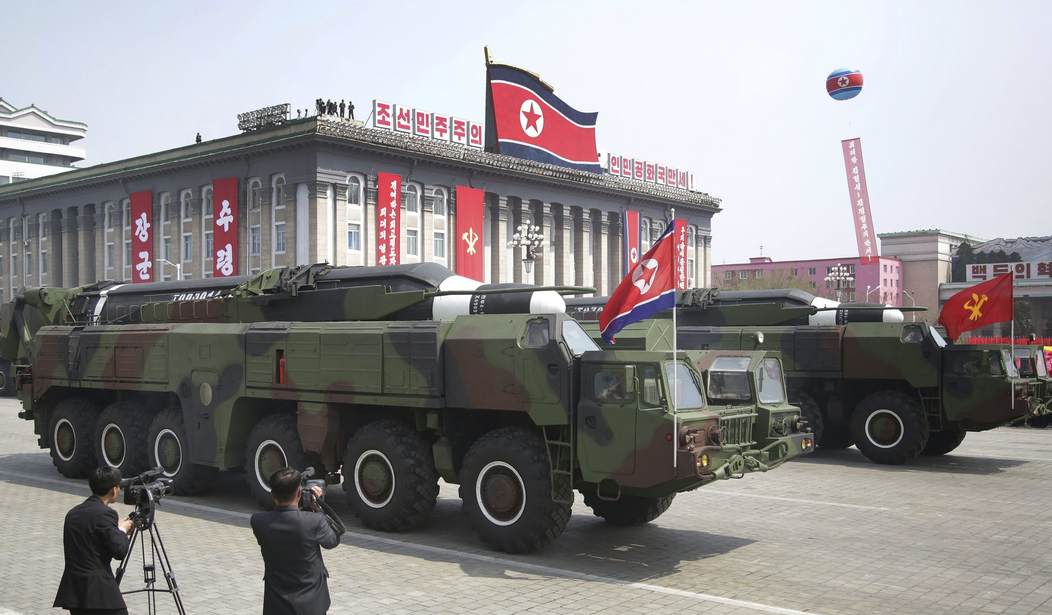WASHINGTON – Sen. Rob Portman (R-Ohio) on Tuesday asked a Trump official why the U.S. has not redesignated North Korea as a state sponsor of terrorism given the “death sentence” it imposed on Otto Warmbier and its nuclear dealings with Iran.
The State Department removed the Democratic People’s Republic of Korea’s terror designation in 2008 through the Perry Initiative, which was implemented by the Bush administration. With the removal of the designation, North Korea agreed to disable its plutonium factory, among other promises that the communist nation has not upheld.
Portman noted that North Korea’s missile program is as active as ever, and pointed out that leadership has shared nuclear weapons technology with Iran, which is recognized as a state sponsor of terrorism. The death of Warmbier, whom Portman welcomed back to Ohio in June just days before he passed away, shows North Korea’s level of “depravity.”
“We are reviewing that issue right now,” Susan A. Thornton, the State Department’s acting assistant secretary for the Bureau of East Asian And Pacific Affairs, said Tuesday during a hearing before the Senate Foreign Relations Committee’s subcommittee on East Asia, the Pacific and international cybersecurity. “It is an issue that the secretary has taken an interest in. There are a lot of technical and legal aspects to it, so I can’t tell you with great specificity where we are in the review right now, but we are looking at the issue of designation, and I could give you more information perhaps at a later date.”
Sen. Cory Gardner (R-Colo.), who chairs the subcommittee, said that the State Department needs to provide a timeframe on that decision soon.
“It is clear, whether it’s the murderous actions the regime has taken against its own people, others, the imprisonments that they continue to be responsible for, whether it’s the missile launches that continue, whether it’s interaction with Iran, this decision needs to be a redesignation of that state sponsor of terror,” Gardner said.
The U.S. currently recognizes Iran, Syria and Sudan as state sponsors of terror.
Tuesday’s discussion also touched on North Korean’s increase in business dealings with China, despite international sanctions against Kim Jong-un’s regime. Records show that North Korea, whose economy flows about 90 percent through China, enjoyed a 37 percent increase in trade with China between 2016 and 2017. Sen. Ed Markey (D-Mass.) said those signals are a strong indication that the strategy to sanction North Korea is not working. He asked what the Trump administration is doing to “tighten the vise grip” on Chinese companies that are enabling North Korea.
Markey and Gardner earlier this month introduced legislation – the North Korean Enablers Accountability Act — which would allow the U.S. to pursue actions against the top 10 Chinese importers of goods from North Korea, among other measures.
Thornton said that the administration has had conversations with China about “tightening the vise grip.” She noted that U.S. Ambassador to the UN Nikki Haley on Tuesday described positive developments with China on implementing new sanctions against North Korea.
“We’re also telling them up front that we will not hesitate to take additional actions against Chinese companies that are violating the sanctions against North Korea,” Thornton said.
Thornton said that the State Department in the next few weeks will issue a notice in the Federal Register outlining guidelines for the agency’s pending travel restriction for Americans who may want to head to North Korea. Once in effect, U.S. passports will not be valid for travel through North Korea unless the individual obtains an exemption for humanitarian purposes.
“We seek to prevent the future detentions of U.S. citizens by the North Korean regime to avoid another tragedy like that which Otto Warmbier and his family endured,” Thornton said during her testimony. North Korea still holds three American detainees.
The humanitarian exemption was added, she said, because the State Department does not “wish to punish the North Korean people for the actions of their leadership.”









Join the conversation as a VIP Member